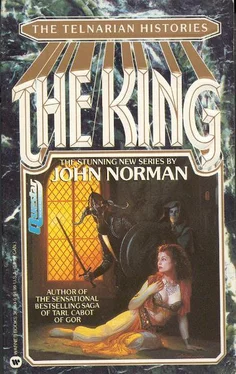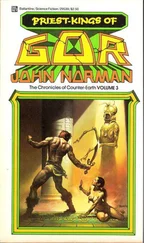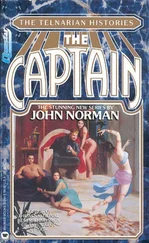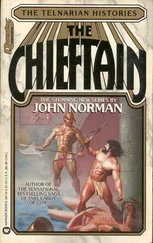“Only a stranger could be such,” said a man.
“Yes,” said Ulrich.
Eyes turned toward the giant.
“No!” cried Rolof.
“He has brought to the hall the pelt of the white vi-cat,” said Ulrich.
“Such was the mantle of Genserix,” said a man.
“It is the medallion and chain which are important,” said a man.
“The medallion and chain were lost,” said a man.
“It fell to the lot of Heruls,” said a man.
“There can be no true king without the medallion and chain,” said a man.
“It was that, allegiance to it, sworn by the fathers of the clans, that united the people,” said a man.
“Yes,” said another.
“So there can be no true king,” said a man.
“I do not come amongst you to be king,” said the giant. “I come amongst you to recruit comitates , comites , fellows, companions, swordsmen, fighters.”
“He is a spy for Telnaria!” said a man.
“He is a Herul spy. See the Herul knife!” said another.
The giant cut more meat, indeed, with the Herul knife, which, by means of Yata, he distributed, indicating likely recipients.
Then he rose up, from where he had crouched, cutting meat, and stood again on the table.
“Begone, stranger,” said Rolof.
The giant freed the great blade of the meat, into which he had thrust it.
“Make the stranger year king,” said Ulrich. “In that way no clan, and no house, takes precedence over another. Why should you, Rolof, or you, Valdemar, or Gundar, or Hartnar, or Gelerich or Astarax, or any other Otung of noble blood, stain his honor by accepting the post of year king? It is dishonor to accept it, not honor. To accept such a kingship is not glory, but shame. It is to serve not Otungs, but Heruls.”
“In yielding to the stranger,” said a man, “you lose nothing in honor, for no rival takes precedence over you.”
“And you show contempt for Heruls,” said another.
“No!” said Rolof.
“I would be king, even if for a year!”
“I!” said Valdemar.
“No!” cried the others. “I! I!”
“Alas,” said Ulrich. “All is lost.”
“No,” said the giant.
“How so?” asked Ulrich.
“For the hero’s portion has been claimed,” said the giant.
“That is true, milords,” said Urta. “One stands between you and the kingship.”
Retainers rose to their feet.
But more than a dozen young men before whom meat had been placed rose, too, to their feet.
“Hold!” cried Urta.
“My company,” said the giant, “is open to all clans, to all Otungs, and to others, as well.”
“And in such a company,” said a man, “to whom is allegiance owed-to Telnaria, our hated foe, to whom we owe our exile on Tangara?”
“No,” said the giant, “not to Telnaria.”
“Then to whom?” asked the man.
“To me,” said the giant.
There was silence in the hall.
“Kill him,” said Rolof, gesturing toward the giant. Six men hurried toward the table.
“No!” cried others.
It was a mistake, of course, that the noble, Rolof, had given the order he had.
It was not in accord with the customs of the Otungs. Too, he did not understand the nature of the giant. But then, at that time, few did. His mistake was then twofold, on the one hand, a breach of civility, on the other, as it turned out, an error of judgment, not that one should blame Rolof severely for that, as, at that time, as we have suggested, the nature of the giant was not clearly understood.
The accounts differ troublesomely on what exactly occurred.
They concur, however, on the cry.
With a sudden, wild cry, a cry which astonished those in the hall, a glad, elated cry, as though of the release of long pent-up frustration, of patience too long restrained, a cry of savage joy, of feral gladness, a releasing, laughing, merciful, discharging cry, a cry like the flashing of fire, like the sudden, unexpected, exultant crack of thunder from violent, aching, swollen clouds, a cry bestial, grateful and exultant, a cry that might have been that of a starving man who sees food, that of a man dying of thirst who sees water, the giant leapt from the table, the huge blade in flight, hurtling, bearing with it all its edged, cruel weight, that mighty blade which the giant handled as if it might have been a straw, sped with all its momentum, that of his movement and of its own swift, smooth arc, like a steel wind, almost invisible.
Accounts of what matters then occurred, and the order in which these matters occurred, tend to vary amongst the chroniclers. Whereas this is regrettable, it is also quite understandable, as it is a commonplace that when a complex event occurs suddenly, precipitately, in a crowded area, and is hastily resolved, that even eyewitnesses tend to produce conflicting reports of what occurred. Doubtless they are startled, and perhaps confused; much happens quickly; it is soon done; perspectives differ; some vantages are superior to others; what one notes may depend in part on one’s expectations; and memory, too, tends to be fallible, particularly in the case of such events, where so much happens so quickly; too, one must remember that the hall was doubtless poorly lit.
I have elected to follow here, in the main, the account of Orban, of the house of Orix, as reported in the second chronicle of Armenion, as revised by Teminius. I have selected it not because I regard it as that likely to be most accurate, but rather because, as I do not know which account is the most accurate, it is the most restrained.
I apologize for the account, but it must be remembered that the times were other than ours.
Six men, it may be recalled, hurried toward the table, these retainers of Rolof, his champion, and five others, these coming from the giant’s right.
The mighty blade, which might have felled a small tree, or cut the head from a horse, with one blow, like a live, leaping thing, rising up, a flat, edged living wind, a flash under the torches, caught the men doubled on one another, they not anticipating the attack, they having foolishly thought it was they who were the aggressors, the first two stopping, suddenly, startled, others stumbling against one another, the men falling amongst themselves, none set, none in the guard position, caught the first two men to the right, cutting upward through the armpit of the first, slashing away the arm and upper torso and neck and head, and flighting thence, in the same arc, to cleave away the upper skull of the second man, the blade turning then, in its back stroke, to cut away the hand and split the ribs of a third man. The other three, half fallen, looked up, wildly, and one amongst them was cleaved at the side of the head, the stroke, downward, at the right eye, ceasing its dividing stroke only at the last of three sheared ribs. Two others turned to flee but another stroke cut both feet from under one, and he hobbled on stumps to the table of Rolof, beneath which he fell, and the last was caught against that very table itself, the table of Rolof, where he fell before his lord, the table itself splintered then in twain, the body, half cut in two, folded in upon itself, descending, sliding, in the collapsed planks. The giant scarcely noted the horrified eyes of Rolof behind the table, when his arena sense, alert to the tiniest of sounds, was that the movement of a foot in the dust, brought him full about to see men of lord Valdemar advancing toward him.
“Stop!” cried Urta.
The giant laughed, to see more meat for his sword, and men hesitated.
“Stop!” again cried Urta, the namer of kings.
“Kill him!” cried Valdemar, and his champion edged forward, but one blow of the long blade smote through a shield, flinging the arm, caught in the device’s straps, across the hall.
Читать дальше












